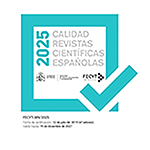The Idea of Communism and the Communism of the Idea
Resumen
Este ensayo articula una doble hélice en función con el pensamiento de Badiou, enfocándose en vislumbrar a la política como condición de la filosofía. De acuerdo con este autor, la filosofía como tal, se centra en lo que Badiou llama "la Idea del comunismo" y nosotros llamaremos "el comunismo de la Idea". El primero se refiere al comunismo como Idea por excelencia, mientras que el segundo concierne a la Idea como comunismo filosófico. La primera sección del ensayo desentraña la Idea del comunismo como una interacción compuesta de política, historia y subjetividad en la medida en que cada uno de estos elementos no puede tomarse por sí mismo. Contrariamente a la post-ideología, Badiou condena la pretensión de que deberíamos vivir sin un marco ideológico en la medida en que esto nos pide vivir sin una Idea. La segunda sección se centrará en el comunismo de la Idea como resultado del proyecto filosófico más amplio de Badiou y sus principales gestos platónicos. Las preocupaciones más amplias de Badiou se refieren al compromiso de vivir con una Idea como finita, infinita y transfinita hasta el punto final de que la filosofía misma se caracteriza por estar destinada al comunismo. El quid de que cualquiera puede llegar a ser un filósofo serio si, parafraseando a Diotima en el Simposio de Platón, se presta graciosamente al proceso de las verdades como compromiso fundamental.
Descargas
Descarga artículo
Licencia
La revista Res Publica. Revista de Historia de las Ideas Políticas, para fomentar el intercambio global del conocimiento, facilita el acceso sin restricciones a sus contenidos desde el momento de su publicación en la presente edición electrónica, y por eso es una revista de acceso abierto. Los originales publicados en esta revista son propiedad de la Universidad Complutense de Madrid y es obligatorio citar su procedencia en cualquier reproducción total o parcial. Todos los contenidos se distribuyen bajo una licencia de uso y distribución Creative Commons Reconocimiento 4.0 (CC BY 4.0). Esta circunstancia ha de hacerse constar expresamente de esta forma cuando sea necesario. Puede consultar la versión informativa y el texto legal de la licencia.









